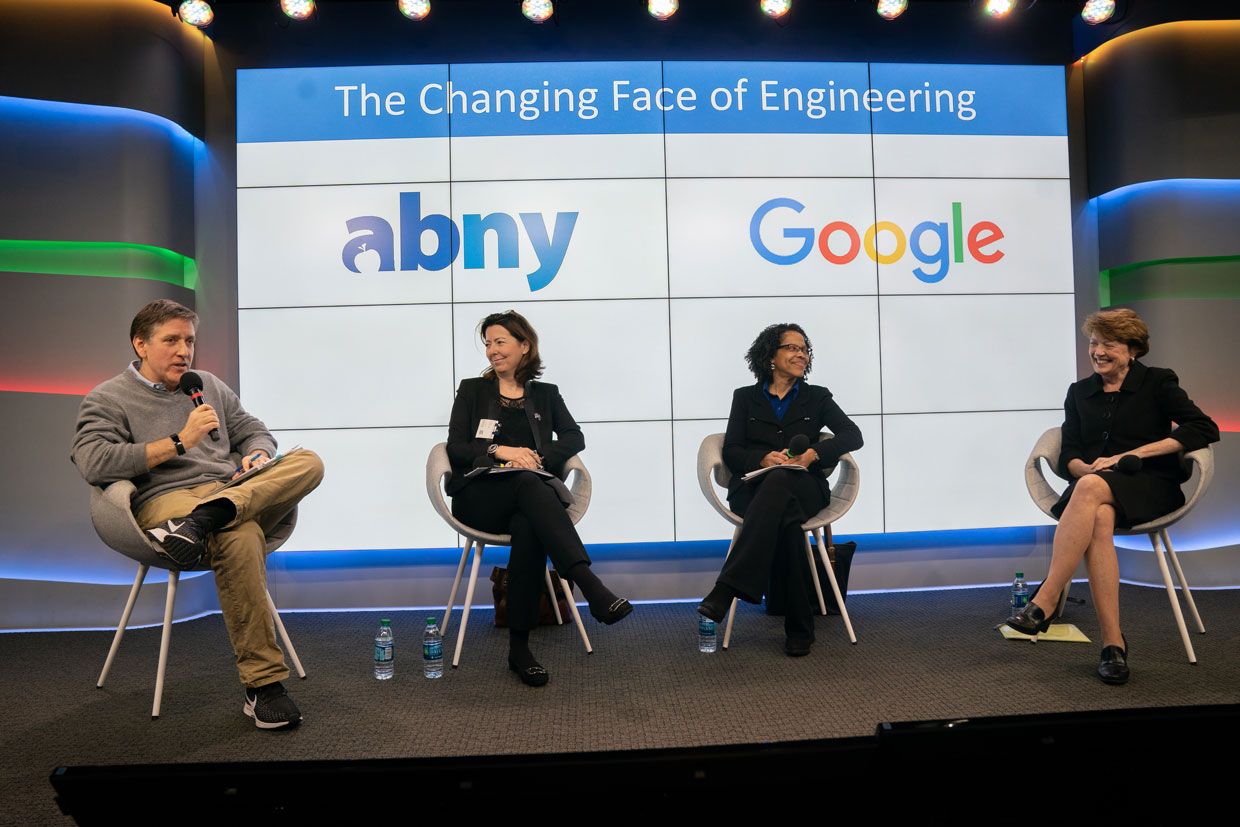How Three Universities Are Keeping Up With Changes in Engineering
This article originally published by IEEE Spectrum Magazine on April 12, 1019. The IEEE HOU Sec. take no additional rights or privileges to the article and is sharing for educational purposes only.
How Three Universities Are Keeping Up With Changes in Engineering
Deans at City College of New York, Columbia, and NYU share what they are doing

THE INSTITUTE The world of technology is constantly changing, and schools need to follow suit to prepare future engineers. And university students are becoming more concerned about addressing the needs of society and are demanding a more well-rounded education.
That’s what the deans of three New York City engineering universities had to say during the Changing Face of Engineering panel hosted by the Association for a Better New York and Google on 11 March at the company’s New York office. Google CIO Ben Fried moderated the panel.
Deans Gilda Barabino of the City College of New York Grove School of Engineering, Mary C. Boyce of Columbia’s Fu Foundation School of Engineering and Applied Science, and Jelena Kovačević of the NYU Tandon School of Engineering were the speakers. They discussed how they keep up with the changing needs of students and employers and the need for more diversity in university programs. They also gave career advice for budding engineers.
CHANGING EDUCATION
All three deans said students have asked for more programs that provide real-world experiences and volunteering opportunities.
“Engineering students want to make a positive societal impact,” Kovačević said, “and New York City is the perfect test bed.”
One program at NYU that provides such projects is Sounds of New York City. It brings together professional engineers and engineering students from NYU and Ohio State University to create technology that can monitor, analyze, and mitigate noise levels in buildings. Noise is the biggest complaint New Yorkers have, according to Kovačević.
The deans work to offer students more cooperative opportunities and internships. But to create such programs, Barabino said, more partnerships with companies would be beneficial to help universities provide courses based on the needs of industry. Without such collaboration, she said, universities will not be able to keep up.
BOOSTING ENROLLMENT RATES FOR WOMEN
More women are pursuing engineering degrees, but not enough, the three deans said.
“Columbia’s entering engineering class is 49 percent women, and it’s increasing every year,” Boyce said. “We really want to see this trend spread out to other universities outside of New York.”
“While we are starting to see equality in undergraduate studies, we don’t have those same high levels of representation for women in graduate schools,” Barabino said. “There are fewer women pursuing master’s degrees and doctorates.
“Women want to enter environments that are inclusive and where they feel valued. The more that changes, the more increases in enrollment we’ll see.”
One way is through mentors and support systems. Encouragement and guidance make a difference in self-confidence and motivation, Boyce said.
Both Barabino and Boyce designed and made their own clothes as youngsters, and that’s what got them interested in engineering, they said. Kovačević pursued a career in engineering because of her interest in math and physics, and her family’s support of her decision. All three women earned graduate degrees.
Women in particular are expected to be extraordinary in the field of engineering, according to Kovačević. When a woman isn’t, people question her place in the program, Barabino said.
“Use someone doubting your abilities or other situations such as this as motivation,” she suggested. “It’s important to remember you may one day be a role model for someone else.”
The panelists said that once talented women see others in the field, there is a snowball effect.
CAREER ADVICE
None of the three deans had dreamed that one day they would hold leadership positions in academia. They said they encourage students to keep an open mind with regard to career choices.
“When opportunity knocks, answer,” Barabino advised. “You may not always know where the route will go, but it’s worth taking a chance.”
Barabino wanted to have a say in how a university ran its engineering program. That’s why she decided to accept the position of inaugural vice provost for academic diversity at Georgia Tech.
All three deans said they tell students it’s important to join a professional society.
“As practitioners, we are the keepers of our profession,” Barabino said. “One way to do that is through a professional society.” Membership provides opportunities to meet others in the field and build relationships, she pointed out. For example, Kovačević is an IEEE Fellow and is a member of IEEE Spectrum’s editorial advisory board.
The three said it is important to remind students what the end goal is when they hit a rough patch. Many students get discouraged if they are struggling or not receiving support. They can lose sight of why they were pursuing engineering, whether it was because they wanted to follow in a family member’s footsteps or make a difference in the world.
“Pursuing a subject you love is important,” Boyce said. “I encourage all students in engineering programs to understand that they have the power and skills to be able to reach their goal.”
